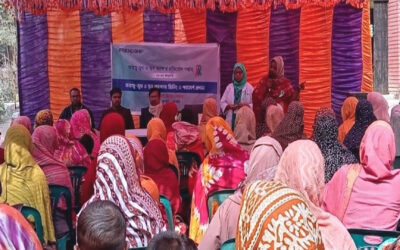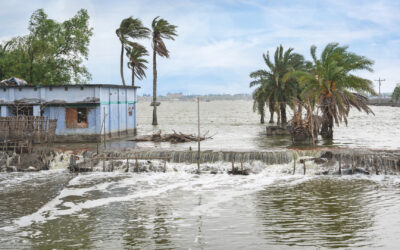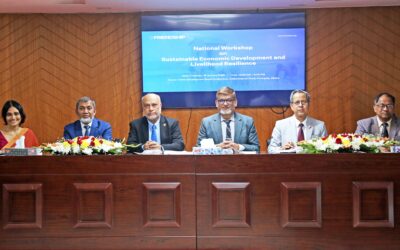A look at Friendship’s youth volunteers for International Youth Day 2025
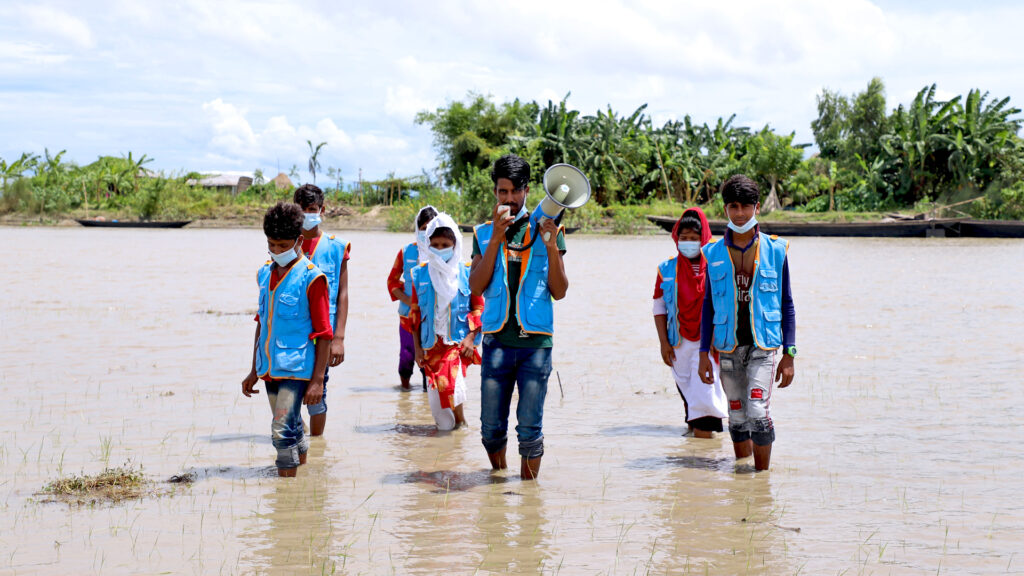
by Iffat Ara Sharmeen,
12 August 2025
Friendship relies on thousands of youth volunteers throughout the country to holistically work across four major commitments spanning six sectors of development.
Amid global crises, young people adapt global solutions locally. This International Youth Day 2025, under the theme of ‘Local Youth Actions for the SDGs and Beyond’, we take a look at the ways Friendship youth have achieved root-level success in implementing the Sustainable Development Goals (SDGs) over the past 23 years.
Saving Lives (SDGs 1, 2, 3, 6, and 13)
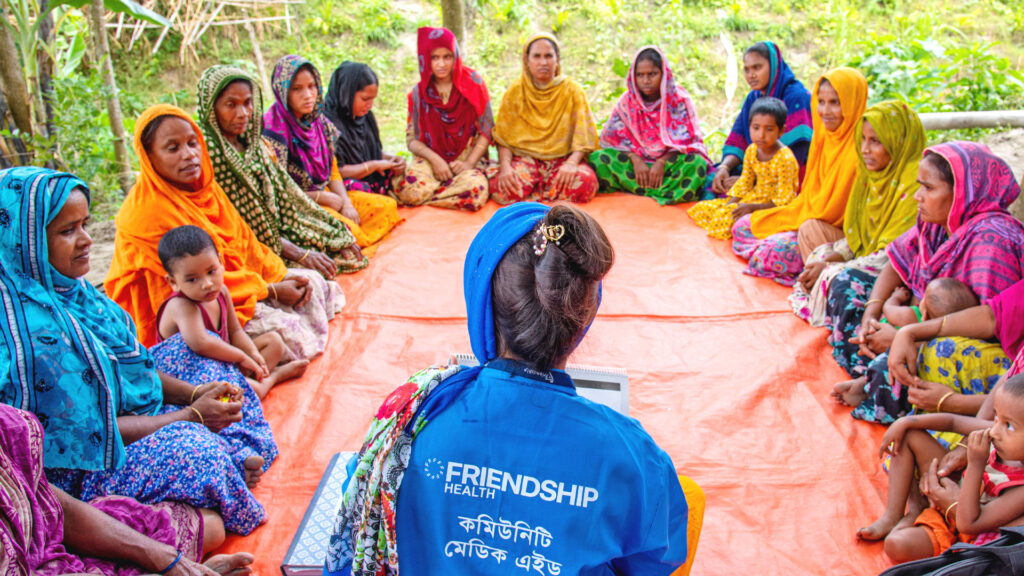
As part of this commitment, Friendship ensures that the most marginalised communities receive quality healthcare and disaster relief services. 458 Friendship Community Medic-aides (FCMs) and Community Skilled Birth Attendants (CSBAs) ensure basic healthcare in these communities. In Cox’s Bazar, 44 Community Psychosocial Volunteers (CPVs) offer basic mental healthcare, while 90 Community Health Workers (CHWs) provide primary care in Rohingya camps.
In the northern riverine char islands, 2,800 flood volunteers save lives with advanced training in disaster risk reduction, early warning, and search-and-rescue techniques during floods, including 1,350 Friendship Disaster Management Committee members guiding communities through disasters. In flood-hit areas with scarce drinking water, 130 trained Water Caretakers install and maintain tube wells to ensure safe drinking water.
Poverty Alleviation: SDGs 1, 2, 7, 8, 10, 12, 13
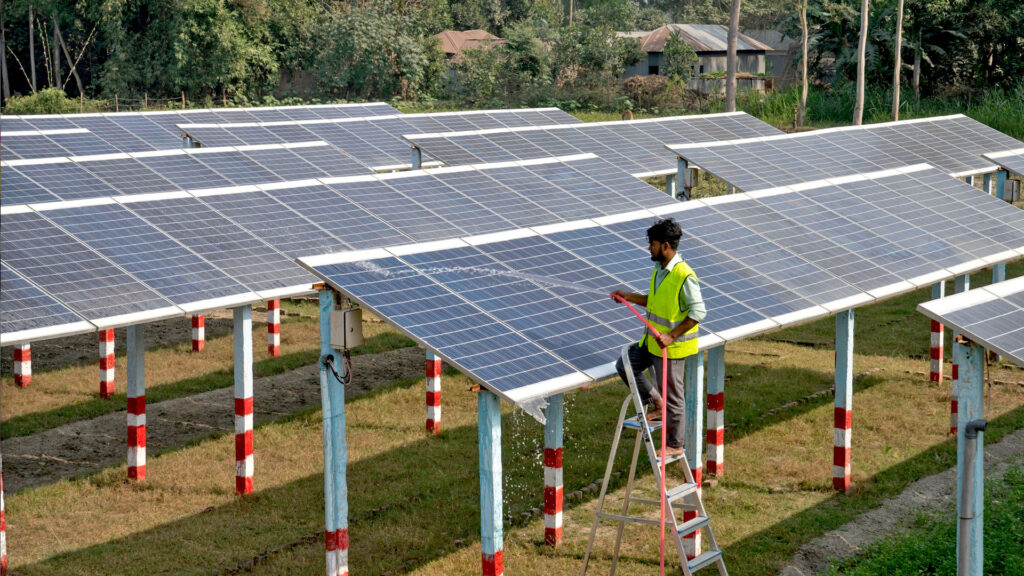
Under this commitment, Friendship ensures capacity building, micro-entrepreneurship, and access to economic services in hard-to-reach areas for economic emancipation.
For example, Friendship trained 759 young Para Solar Technicians (PST) to install and maintain solar power units and powered equipment in the char islands. 105 trained Farm Power Mechanics and 257 Animal Health Workers brought farm machinery and veterinary services to the char islands. 36 young women trained in weaving centres to create traditional handicrafts which are sold locally and abroad. They all generate income that sustains their financial freedom.
Climate Adaptation: SDGs 1, 7, 9, 11, 12, 13, 14, 15
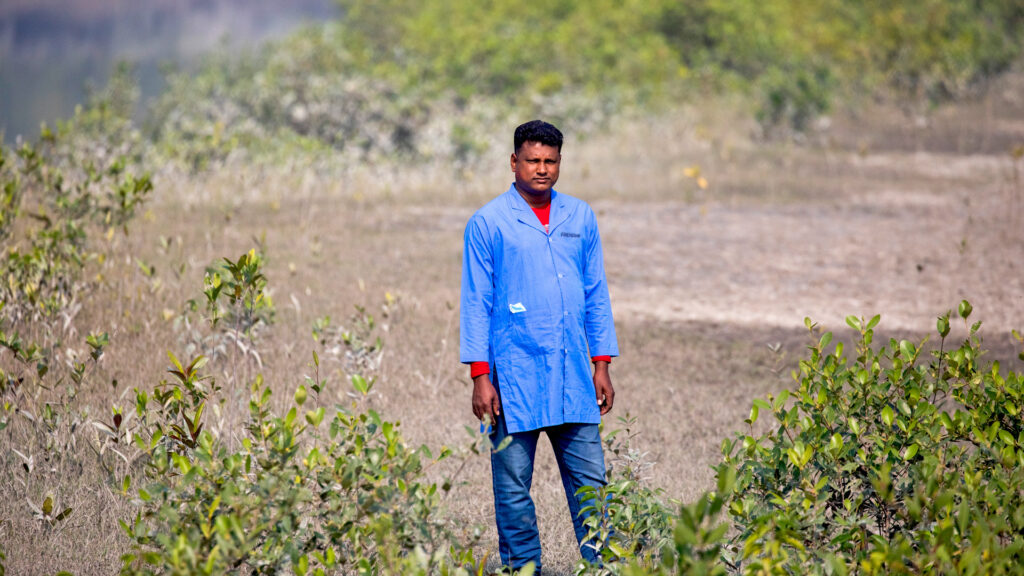
As part of climate resilience measures and locally led adaptation, Friendship youth are involved in maintaining raised plinths in the char areas. They also mobilise their communities for construction, lead disaster preparedness drills, and promote flood-resilient activities such as farming or safe storage of essentials.
In the southern coastal areas where Friendship’s mangrove plantations are located, young community caretakers protect and nurture the mangrove nurseries and monitor growth. Fifty per cent of these caretakers are women. They also raise local awareness about the role of mangroves in preventing erosion, mitigating the impact of storms, and protecting coastal communities.
Empowerment: SDGs 1, 3, 4, 5, 9, 10, 13, 16, 17
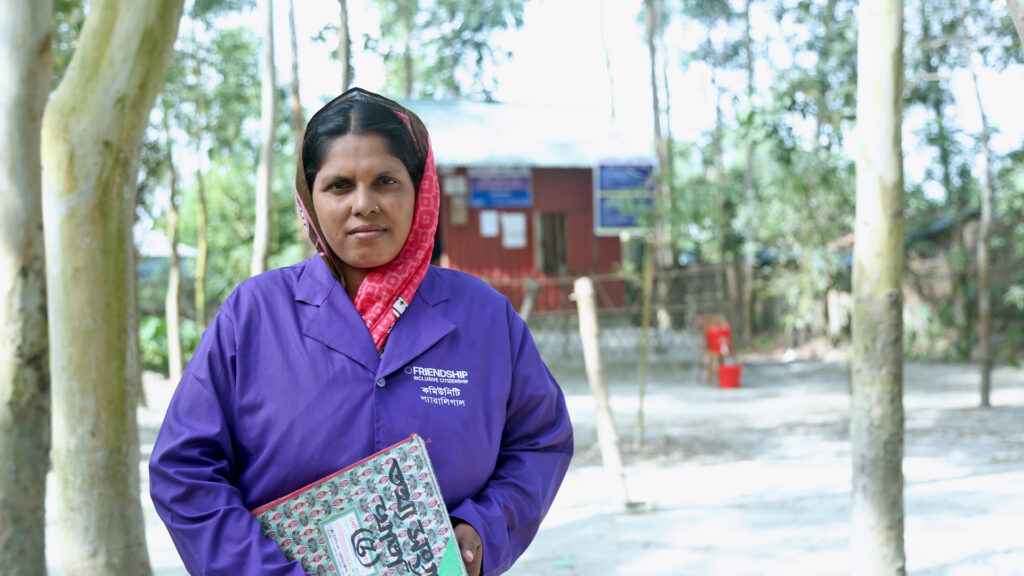
This commitment allows Friendship to provide quality education and access to justice in remote areas. The Friendship Schools have 71 local youth as teachers, often former students, who educate and inspire the next generation.
66 Community Paralegals and 45 Community Governance Aides help excluded groups access justice and raise civic awareness. Through training, 1,845 youth lead awareness campaigns, such as Char Theatre performances on ethics and social issues.
Young people are catalysts for change, inspiring innovation and resilience within their communities when given the opportunity and dignity. Their active leadership and humility help Friendship develop scalable, sustainable solutions that address the community with dignity.

